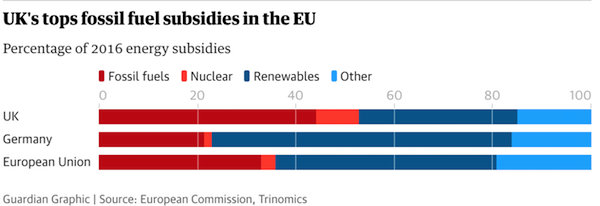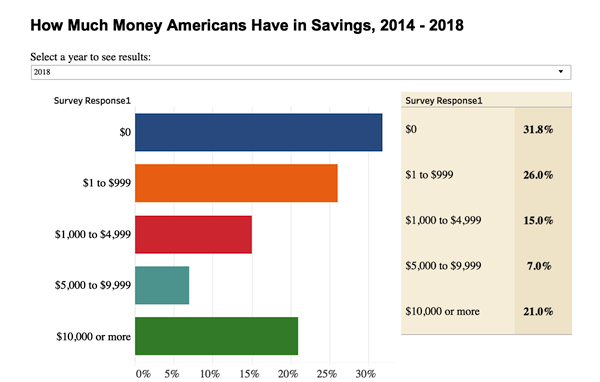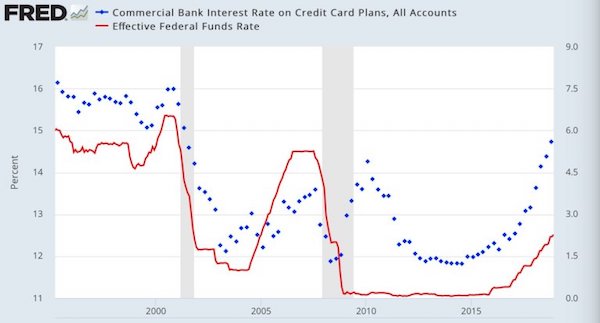
Pablo Picasso The classical head 1922

This curious spectacle of the rich and famous pretending to tackle a crisis. As I was filing this article, Bloomberg ran a headline for a live event that went: “Bono and Christine Lagarde Discuss How to Address Income Inequality”
• David Attenborough And Prince William Warn World Leaders On Environment (G.)
Sir David Attenborough has warned that humankind has the power to exterminate whole ecosystems “without even noticing”, and urged world leaders to treat the natural world with respect, during an interview with Prince William in Davos. Prince William also took world leaders to task at the World Economic Forum in Switzerland, asking Attenborough why those in key positions have “taken so long” to address climate change. Attenborough said the connection between the natural world and urban societies had been “remote and widening” since the industrial revolution, meaning humans do not realise the effect their actions have on the global ecosystem. The 92-year-old broadcaster added that it was “difficult to overstate” the urgency of the environmental crisis.
“We’re now so numerous, so powerful, so all-pervasive, the mechanisms we have for destruction are so wholesale and so frightening, that we can actually exterminate whole ecosystems without even noticing it. We have to now be really aware of the dangers of what we’re doing, and we already know that of course the plastic problem in the seas is wreaking appalling damage upon marine life, the extent of which we don’t yet fully know.” He stressed that the natural world “is not just a matter of beauty, interest and wonder” but a coherent ecosystem on which we depend for “every breath we take, every mouthful of food we take.” A healthy planet, Attenborough added, is an essential part of human life. “If we don’t recognise the kind of connections I’ve been describing, then the whole planet comes in hazard, and we are destroying the natural world and with it ourselves.”

Catchy headline, but… She’ll be whistled back any time now. Can’t steal Kamala’s, or Warren’s, or Bernie’s headlights.
“I do think a system that allows billionaires to exist when there are parts of Alabama where people are still getting ringworm because they don’t have access to public health is wrong..”
• The Super Rich At Davos Are Scared Of Ocasio-Cortez’s Tax Proposal (CNBC)
The elite financiers attending the World Economic Forum are worried about the 70 percent tax rate on earnings above $10 million proposed by freshman Rep. Alexandria Ocasio-Cortez, D-N.Y. “It’s scary,” Scott Minerd, global chief investment officer for $265 billion Guggenheim Partners, said in an interview. “By the time we get to the presidential election, this is going to gain more momentum,” said Minerd, who added that he would probably be personally impacted by it. “And I think the likelihood that a 70 percent tax rate, or something like that, becomes policy is actually very real.”
.@AOC on millennials and social media: "We’re, like, the world is going to end in 12 years if we don’t address climate change" pic.twitter.com/HjhbVyfFN4
— Tom Elliott (@tomselliott) January 22, 2019
The billionaires and millionaires attending Davos had misgivings about Ocasio-Cortez’s proposal, which she made during a recent interview on CBS’ “60 Minutes.” A poll found that 59 percent of voters were in favor of the idea, and even 45 percent of Republicans liked it. The lawmaker has turned heads in Washington and on Wall Street with her left-wing economic rhetoric, despite only being sworn into office earlier this month. Ocasio-Cortez, who represents parts of Queens and the Bronx, identifies as a Democratic-Socialist. In Davos, Stephen Schwarzman, the billionaire CEO of private equity giant Blackstone and Republican megadonor, said sarcastically that he is “wildly enthusiastic” about the lawmaker’s proposed tax hike. He added that “the U.S. is the second most progressive tax regime in the world,” meaning that tax rates climb along with higher incomes.
The remarks at Davos came a day after Ocasio-Cortez had even more harsh words about how the U.S. economy works. “I do think a system that allows billionaires to exist when there are parts of Alabama where people are still getting ringworm because they don’t have access to public health is wrong,” she said at a New York event on Martin Luther King Day. Ocasio-Cortez addressed this article in a tweet Tuesday. “It’s wild that some people are more scared of a marginal tax rate than the fact that 40% of Americans struggle to pay for at least one basic need, like food or rent,” she wrote.
It’s wild that some people are more scared of a marginal tax rate than the fact that 40% of Americans struggle to pay for at least one basic need, like food or rent.
Imagine if we focused positively, away from fear of the former toward solving the latter.https://t.co/91SoKmhGxx
— Alexandria Ocasio-Cortez (@AOC) January 22, 2019

They all talk green in Davos. But this is what they actually do. Your politicians won’t save the planet.
• EU Fossil Fuel Subsidies Still At The Same Level As 2008 (G.)
The UK leads the European Union in giving subsidies to fossil fuels, according to a report from the European commission. It found €12bn (£10.5bn) a year in support for fossil fuels in the UK, significantly more than the €8.3bn spent on renewable energy. The commission report warned that the total subsidies for coal, oil and gas across the EU remained at the same level as 2008. This is despite both the EU and G20 having long pledged to phase out the subsidies, which hamper the rapid transition to clean energy needed to fight climate change. Germany provided the biggest energy subsidies, with €27bn for renewable energy, almost three times the €9.5bn given to fossil fuels.
Spain and Italy also gave more subsidies to renewable energy than fossil fuels. But along with the UK, France, the Netherlands, Sweden and Ireland all gave more to fossil fuels. The report is based on 2016 Eurostat data, the latest available, and found that across the EU renewable energy received 45% of subsidies and fossil fuels 33%. The commission report said policies were being pursued to cut carbon emissions and meet the Paris climate agreement goals of limiting global warming to well below 2C above pre-industrial levels. “However, despite this and the international commitments made in the context of G20 and G7, fossil fuel subsidies in the EU have not decreased,” it said. “EU and national policies might need to be reinforced to phase out such subsidies.”


We already knew that. It’s just one more sign.
• Shutdown Reveals Most Americans Are Unprepared For The Next Recession (MW)
The government shutdown, the longest in history, comes with a hidden revelation: Millions of Americans are financially unprepared for the next economic downturn. Worse, they are highly vulnerable, with few protections available to them. Ten years after the financial crisis, the economic recovery has left millions behind with little to no savings, and the government shutdown serves as a preview for what will happen once unemployment rises from 50-year lows. Within just a few weeks into the government shutdown, people are struggling to cope. [..] Why do a few weeks without pay turn into a crisis for many families? Simple: Nearly 80% of Americans live paycheck to paycheck. That’s a problem when you have little to no savings. In fact, it’s akin to playing financial Russian roulette.

And the problem is terrifyingly pervasive. According to a recent GoBankingRates survey, only 21% of Americans have more than $10,000 in savings, with nearly 60% having less than $1,000 in savings. This savings-free game of complacency works as long as people have a steady paycheck coming in and as long as interest rates stay low. But they are not staying low, even though the Federal Reserve may be patient again this year, as it has proclaimed in recent days. As a matter of fact, the cost of carrying debt, especially the revolving credit-card type, have exploded higher since the Fed tempered rate increases. Think I’m exaggerating? How about this: Interest rates on credit cards by commercial banks are now as high as they were in 2000:


Baffled by the obvious.
• Unusually Large Drop In US Home Sales Has Real Estate Agents Baffled (CNBC)
Real estate brokers are trying to figure out why sales of existing homes plunged in December. The 6.4 percent monthly move was unusually large, regardless of direction. The tally from the National Association of Realtors generally moves in the very low single digits month to month. In fact, the shift was one of the largest that didn’t involve some sort of change in government policy, like the homebuyer tax credit. “The latest decline is harder to explain. Perhaps it is the decline in consumer confidence that’s been occurring in the latter half of 2018,” said Lawrence Yun, chief economist for the Realtors. “The latest numbers do not reflect the lower, current mortgage rates compared to the November figures, so it’s really harder to explain.”
The supply of homes for sale also rose just more than 3 percent compared with a year ago. Low supply had been holding sales back last spring, despite strong demand, so it would make sense that more supply would boost sales, unless this is a sign that demand is weakening. “This weakness is certainly due to the sharp home price gains along with the rise in mortgage rates,” said Peter Boockvar, CIO at Bleakley. Affordability has been blamed for slower sales over the past six months, but sales in December matched the same pace as in 2000, and Yun argues that affordability is better now. “Today it is actually more affordable compared to year 2000, yet we have about 20 million more jobs, so for home sales to be roughly equivalent means that in 2018 there is an underperformance of the overall housing sector.”

A very useful set of numbers from Galloway. As I said yesterday: the first to jump party lines wins. 200 Tories and 100 Labours want no Hard Brexit and no general election. Throw in fringe parties and you have a solid majority. Call it a national government.
• Moonwalking with Theresa May: Unboxing Brexit ‘Plan C’ (George Galloway)
There are 317 Conservative MPs. At least 100 of them are Brexiteers who would never go quietly into the good night of the current political dispensation. But 200 of them conceivably could if it meant: a) avoiding a “Hard-Brexit” and b) avoiding a General Election. There are 256 Labour MPs. Most of them hate the idea of Brexit and many of them equally hate the idea of a General Election, which would bring their own leader to power. Mindful though that MacDonald became a historic by-word for treachery in the labor movement and that “all over the country Labour people turned his portrait to face the wall” in the wake of his betrayal, let’s imagine 100 of the current crop of Labour MPs “doing a MacDonald” and betraying their banner. That gives us a hypothetical 300 MPs in a House of 650.
That makes them the “biggest party” in the house by far and with a claim to the Speaker and the Queen for recognition as the “Government” of the UK. When you factor in the support (assured) of the 11 Liberal Democrats the 35 Scottish Nationalists (if their deal was right) the 8 independents, (assured) the 4 Welsh Nationalists (assured) the one Green MP (assured) and the assured abstention from the House of the 7 Sinn Fein MPs (Irish Republicans who cannot swear allegiance to the Queen and thus cannot take their seats) this would give the “National Government” bloc 359 MPs in a House of effectively 640 (650 less 7 SF and 3 Speakers and Deputy Speakers) A much more “strong and stable” government than Theresa May could even dream off. Their purpose – canceling Brexit.

What took them so long?
• Companies Press Brexit Panic Button In Further Blow To Theresa May (G.)
The scale of no-deal panic gripping major companies has been thrown into sharp focus by a series of damage-limitation announcements, as corporate Britain signalled it is running out of patience with Westminster gridlock. Sir James Dyson, the Brexit-backing billionaire, dealt a further blow to the government by revealing he is shifting his company headquarters to Singapore in a move that drew sharp criticism. Dyson’s decision to move his HQ out of the UK came on a day in which a series of high-profile names revealed measures to mitigate the impact of a disorderly departure from the EU:
• P&O announced that its entire fleet of cross-Channel ferries will be re-registered under the Cypriot flag, as the 182-year-old British maritime operator activated its Brexit plans. • Sony confirmed it is moving its European headquarters from London to Amsterdam. • The chief executive of luxury carmaker Bentley said the company was stockpiling parts and described Brexit as a “killer” threatening his firm’s profitability. • Retailers Dixons Carphone and Pets at Home announced plans to shore up supplies in the event of chaos at British ports.
P&O, which began life as the Peninsular and Oriental Steam Navigation company in 1837, said all six of its cross-Channel ferries will be re-registered from the UK registry in Cyprus to keep EU tax benefits. The ferries include, the Spirit of Britain, the Pride of Kent and the Pride of Canterbury. Sony confirmed it was merging its London-based European unit with a new entity based in Amsterdam that would become the new continental HQ. Sony said: “In this way we can continue our business as usual without disruption once the UK leaves the EU.”

Corbyn can nationalize the rialways and hospitals, and remain.
• Britain ‘Could Triple State Aid For Industry Under EU Rules’ (G.)
Britain could triple state aid spending to industry without breaching EU rules, according to a study that compares government subsidies to promote economic growth across Europe. EU state aid rules “do not prevent an active industrial policy”, the report found, giving the green light to the UK government for an increase in its £7bn of state aid to nearer £21bn. The report by the left-leaning IPPR thinktank found that the EU’s state aid rules would apply to the UK once it had left the union because officials in Brussels would enforce the measures through a trade deal. The IPPR director, Tom Kibasi, said: “If the UK government decided to match Denmark, it could invest £250bn over a decade in a more active industrial policy.
“That would give it huge scope to support key areas of the economy, whether we remain in the EU or leave it.” The IPPR has not taken a view on Brexit, but its intervention in the debate over state aid will be keenly examined by Labour party supporters who voted to leave the EU. Like the Labour leader, Jeremy Corbyn, many of them believed that rules imposed by Brussels would constrain a leftwing government from nationalising parts of the economy and from supporting cooperatives or providing funds through state-backed local banks.
State aid can range from a government tax relief scheme for investors to a local authority giving a subsidy to a property developer. It is normally prohibited to prevent trade and competition between firms from being distorted, discouraging investment and increasing costs to consumers. However, the EU has allowed hundreds of public investment programmes to go ahead that support businesses under a regime that the IPPR said was more flexible than it might appear.

Doubling down on the very things that turns their people -and others- against them.
• France And Germany Take Major Step Toward EU Army (ZH)
French President Emmanuel Macron’s push for what he previously called “a real European army” got a big boost on Tuesday amid France and Germany signing an updated historic treaty reaffirming their close ties and commitment to support each other during a ceremony in the city of Aachen, a border town connected to Charlemagne and the Holy Roman Empire. But the timing for the renewal of the two countries’ 1963 post-war reconciliation accord is what’s most interesting, given both the rise of eurosceptic nationalism, the uncertainty of Brexit, and just as massive ‘Yellow Vests’ protests rage across France for a tenth week.
Macron addressed this trend specifically at the signing ceremony with the words, “At a time when Europe is threatened by nationalism, which is growing from within… Germany and France must assume their responsibility and show the way forward. Germany’s Angela Merkel agreed, adding in her own remarks: “We are doing this because we live in special times and because in these times we need resolute, distinct, clear, forward-looking answers.” The agreement, which is being described as sparse on specifics or detail, focuses on foreign policy and defense ties between Berlin and Paris. “Populism and nationalism are strengthening in all of our countries,” Merkel told EU officials at the ceremony. “74 years – a single human lifetime – after the end of the second world war, what seems self-evident is being called into question once more.”
Macron said those “who forget the value of Franco-German reconciliation are making themselves accomplices of the crimes of the past. Those who… spread lies are hurting the same people they are pretending to defend, by seeking to repeat history.” And in remarks that formed another affirmation that the two leaders are seeking to form an “EU army” Merkel said just before signing the treaty: “The fourth article of the treaty says we, Germany and France, are obliged to support and help each other, including through military force, in case of an attack on our sovereignty.” The text of the updated treaty includes the aim of a “German-French economic area with common rules” and a “common military culture” that Merkel asserted could “contribute to the creation of a European army”.

US position gets stronger as China struggles.
• Trump Won’t Soften Hardline On China To Make Trade Deal (R.)
As much as U.S. President Donald Trump wants to boost markets through a trade pact with China, he will not soften his position that Beijing must make real structural reforms, including how it handles intellectual property, to reach a deal, advisers say. Offering to buy more American goods is unlikely by itself to overcome an issue that has bedeviled talks between the two countries. Those talks are set to continue when Chinese Vice Premier Liu He visits Washington at the end of January. The United States accuses China of stealing intellectual property and forcing American companies to share technology when they do business in China. Beijing denies the accusations.
With a March 1 deadline approaching to reach an agreement or risk an escalation of tariffs on another $200 billion worth of Chinese goods, the two sides are still far apart on key, structural elements critical for a deal, according to sources familiar with the talks. “We’re not yet in a position where our concerns have been addressed sufficiently,” one U.S. official said, speaking on condition of anonymity. The official said the Trump team, led by hardline U.S. Trade Representative Robert Lighthizer, was focused on such structural issues as well as trade imbalances. White House economic adviser Larry Kudlow told Reuters that forced technology transfers, IP theft and ownership restrictions remained a top priority for Trump. “The president’s said many times how crucial that is, and he’s not going to back down,” Kudlow said.

Is Orwell available in China? How much longer for? Then again, it’s about what tech can do. And what it can do in China, it can and will do where you live.
• Chinese App ‘Live-Shames’ Debtors Within 500-Meter Radius (ZH)
Authorities in the northern Chinese province of Hebei have rolled out an app over WeChat which can tell people if they’re walking near someone in debt, according to China Daily. The program, aptly named “map of deadbeat debtors,” flashes a warning if someone in debt is within a 500-meter radius – showing their exact location according to a screenshot of the app. Whether the app reveals the debtors’ names or photos is unknown, nor does China Daily mention how much money is owed or to whom – but according to paper the app allows people to “whistle-blow on debtors capable of paying their debts.” “It’s a part of our measures to enforce our rulings and create a socially credible environment,” said a spokesman for the Higher People’s Court of Hebei – which is behind the app.

The “map of deadbeat debtors” is yet the latest in China’s push towards a shame-based “social credit score” system which has already been deployed in several parts of the country. According to a November report, Beijing has an ambitious plan to control China’s citizens through a system of social scoring that punishes behavior it does not approve. [..] Hangzhou, the capital city of China’s Zhejiang province, rolled out its social credit system earlier this year, rewarding “pro-social behaviors” such as blood donations, healthy lifestyles, and volunteer work while punishing those who violate traffic laws, smoke and drink, and speak poorly about government.


Plastics. “A standard 5-kilogram (11-pound) wash of polyester fabrics has been estimated to release up to 6,000,000 microfibers.” ” European shellfish consumers could potentially ingest 11,000 microplastic particles per year.”
• ‘Never Good News Having Particles in Your Brain’ (Spiegel)
Microplastics come from many sources, for example from the breakdown of larger items, abrasion from tires, microbeads from cosmetics or synthetic clothing fibers. A standard 5-kilogram (11-pound) wash of polyester fabrics has been estimated to release up to 6,000,000 microfibers. Through surface runoff, manufacturing processes, agriculture or waste water treatment facilities, most of this ends up in the environment, for example in rivers, and is eventually lost to the seas. Extrapolations suggest that up to 250 million tons of plastic will be present in the oceans by 2025.
Filter feeders like mussels seem to readily internalize microplastics, because they are of the same size as their preferred diet. It has been estimated that European shellfish consumers could potentially ingest 11,000 microplastic particles per year. A lot of the plastic particles in the environment are present in the atmosphere and transported by the wind. When you breathe in air, microscopic plastic particles are inhaled as well. Salt and sugar, for example, have also been reported to be contaminated with plastic, as well as honey and German beer. The analysis of tap water and bottled water found that a high proportion of drinking water contains plastic fragments.
Bigger particles are not readily absorbed. Most of these just seem to pass through the body without doing much harm. It is currently believed that these bigger particles do not penetrate deeply into organs and, if at all, can only cause some limited local inflammation or tissue abrasion. Smaller particles however, referred to as nanoplastics, are a different thing altogether. The smaller the size of the plastic particles, the more likely they are to cross biological barriers such as cell membranes. What we know is that nanoparticles in general can interact with proteins, lipids and carbohydrates in the body. Nanoparticles can even cross the blood-brain barrier and it seems probable that they can affect the central nervous system. Reports of behavioral changes in shrimp and fish exposed to nanoplastics support this hypothesis.
Plastic particles made fish eat slower and explore their surroundings less. There is no concrete evidence right now that nanoplastics penetrate brain tissue in humans, let alone affect behavior. But it has been reported that plastic particles cause oxidative stress in human cell lines. This could potentially cause a number of problems including tissue degradation or inflammation, and it flags up the possibility that an individual with a high concentration of plastic contamination in the central nervous system might have an adverse reaction. Depression for instance has been linked to nanoparticle toxicity in the central nervous system. The plastic fragments might even initiate plaque formation and make Alzheimer’s more likely. It is never good news having particles in your brain.








